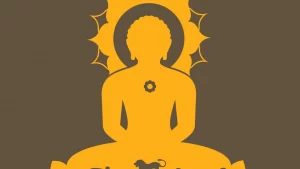Jain Kings
The Jains are celebrated in ancient history and there were many jain kings in those days. King Vajrakaran who ruled in Dashanagara (the present Mandessore) was a Jain and bowed before none but the jain Gods. It is said that there was a great fight between this Jain king and Sinhodar, the Sarvabhaum king of Ujjain, in consequence of the insult which the Jain king offered to the latter by refusing to offer saluation to him, in which Sinhoder was worsted. Shishupal, the ruler of Chanderi near Lalitsur, was a Jain.
Gandharvasen and Shrivarma, the kings of Ujjain, are described by some authors as being Jain but to me, it is still a question. The Vallabh king Kumarpal was a great patron of Jainism. Maharaja Sampadi, the great-grandson of the famous Baudh king Ashoka had embraced this faith. Ashoka himself is held by certain scholars to he been a Jain before he was converted to Buddhism.
While writing about the Udaipur royal family, Col. Todd says in his Annals of Rajasthan that even until now, the queen of Udaipur receives with great ceremony any Jain ascetic who might happen to visit the city. The origin of this custom was that the famous Rana of Udaipur Pratap Sinha was assisted by a great Jain, named Bhamasah, with an army of ten thousand men, when the king was in great stress in his struggle with Akbar.
The story of Pannadai is known to us all. It is said that it was a Jain, by name Asasah, who gave refuse to that noble woman and the prince whom she had saved from Banveer at the cost of her own son. At Mamdu or Mandapachal, a Jain served the Mohamedan king of the place as his Dewan.
